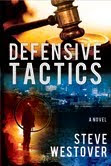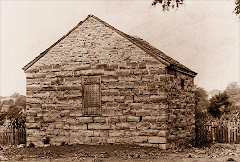
Marvin J Ashton: "The wind and waves will periodically interfere with our chosen course, even in financial matters, but the laws of the gospel can bring us back on course and guide us to peaceful waters."
We have been counseled numerous times about the need to get out of debt.
President James E Faust: “Debt is bondage because the borrower is the servant of the lender”
President Ezra Taft Benson: “No man is truly free who is in financial bondage”
President Thomas S Monson: “We urge all Latter-day Saints to be prudent in their planning, to be conservative in their living, and to avoid excessive or unnecessary debt. The financial affairs of the Church are being managed in this manner,”
We are also told by Elder Ashton, in One for the Money,“money management should take precedence over money production” & “financial peace of mind is not determined by how much we make, but is dependent upon how much we spend.”
Elder Tanner in a 1979 talk entitled Constancy Amid Change, shared 5 areas in which we must be constant in our finances:
1- Pay an honest tithing- This is a discharge of a debt to the Lord
2- Live on less than you earn
3- Distinguish between needs and wants
4- Develop and live within a budget
5- Be honest in all your financial affairs
President Faust also says “some debt may be necessary, such as to acquire a home and get an education. The Lord’s counsel on the subject is to “pay the debt and release thyself from bondage” (D&C 19:35)
Consistent Counsel: The church is consistent and clear on its counsel for its members to live within their means and get out of debt. To get out of debt we must change the behavior that got us into debt. It doesn’t matter what debt reduction strategy you choose, if you fail to change your spending behavior. (Definition of insanity: Continuing the same behavior while expecting a different result)
Strategies for Debt Reduction:
*Level payments *Sell assets *Negotiate rates
*Restructure Debt *Increased payments *Do not add to debt
*Credit Counseling *Bankruptcy *Compound payments
Which strategy is best? What will work for you?
Must Do
1- Distinguish between Needs & Wants: Elder Tanner’s #3 constancy
We must be able to prioritize and cut back on unnecessary spending- if you can’t find any way to cut back spending, have a trusted friend or family member look at your spending and make suggestions.
2- Create a Budget and follow it: Do not over extend- Set a goal and target $$ for how much is responsible for you to pay in debt payments each month. Debt ratio: Lenders use a 33% debt ratio to figure how much credit/debt an individual can qualify for. (net your calculations to allow for tithing)
Example:
Annual Family income of $50,000 = $4167 monthly Gross income
$4167 - $417 (tithing) = $3750.00 adjusted gross income
$3750 X .33= $1237 in monthly debt payments ($140 diff)
$3750 - $1237 = $2513 for other monthly expenses
Debt payments include: mortgage or rent, home equity loans, auto loans, credit cards, charge cards, bank loans, student loans
Other monthly Expenses include: fast offerings, food, clothing, utilities, insurance coverage, inter-net, cell phone, gasoline, school expenses, cable TV, vehicle maintenance, etc
3- Stop adding to your debt: Enough said.
4- Choose a Strategy: This may be a combination of strategies. Know the benefits and possible pitfalls of each strategy.
5- Be Disciplined: Do not recycle debt. Often times, when the immediate pressure of debt payments is relieved, individuals return to their same spending habits, creating new debt.
6- Bail Out: If you get over your head in debt, make sure you owe so much money that the Federal Government feels they need to bail you out. Ha! Are you paying attention?
7- Live Debt Free: Tips for living debt free (Forbes.com)
1-Remember the basics- debt HAS to be paid back
2-Write a budget
3-Keep accurate records
4-destroy extra credit cards
5-Increase credit card payments
6-Be aware of interest rates- adjustable or promotional teaser rates
7-Consolidate your debt (Short term) Control spending (long term)
8-Stash cash- if possible 3 months of accessible cash
9-Plan for retirement 1
10-The glory of compound interest- let it work for you in your savings
We have been counseled numerous times about the need to get out of debt.
President James E Faust: “Debt is bondage because the borrower is the servant of the lender”
President Ezra Taft Benson: “No man is truly free who is in financial bondage”
President Thomas S Monson: “We urge all Latter-day Saints to be prudent in their planning, to be conservative in their living, and to avoid excessive or unnecessary debt. The financial affairs of the Church are being managed in this manner,”
We are also told by Elder Ashton, in One for the Money,“money management should take precedence over money production” & “financial peace of mind is not determined by how much we make, but is dependent upon how much we spend.”
Elder Tanner in a 1979 talk entitled Constancy Amid Change, shared 5 areas in which we must be constant in our finances:
1- Pay an honest tithing- This is a discharge of a debt to the Lord
2- Live on less than you earn
3- Distinguish between needs and wants
4- Develop and live within a budget
5- Be honest in all your financial affairs
President Faust also says “some debt may be necessary, such as to acquire a home and get an education. The Lord’s counsel on the subject is to “pay the debt and release thyself from bondage” (D&C 19:35)
Consistent Counsel: The church is consistent and clear on its counsel for its members to live within their means and get out of debt. To get out of debt we must change the behavior that got us into debt. It doesn’t matter what debt reduction strategy you choose, if you fail to change your spending behavior. (Definition of insanity: Continuing the same behavior while expecting a different result)
Strategies for Debt Reduction:
*Level payments *Sell assets *Negotiate rates
*Restructure Debt *Increased payments *Do not add to debt
*Credit Counseling *Bankruptcy *Compound payments
Which strategy is best? What will work for you?
Must Do
1- Distinguish between Needs & Wants: Elder Tanner’s #3 constancy
We must be able to prioritize and cut back on unnecessary spending- if you can’t find any way to cut back spending, have a trusted friend or family member look at your spending and make suggestions.
2- Create a Budget and follow it: Do not over extend- Set a goal and target $$ for how much is responsible for you to pay in debt payments each month. Debt ratio: Lenders use a 33% debt ratio to figure how much credit/debt an individual can qualify for. (net your calculations to allow for tithing)
Example:
Annual Family income of $50,000 = $4167 monthly Gross income
$4167 - $417 (tithing) = $3750.00 adjusted gross income
$3750 X .33= $1237 in monthly debt payments ($140 diff)
$3750 - $1237 = $2513 for other monthly expenses
Debt payments include: mortgage or rent, home equity loans, auto loans, credit cards, charge cards, bank loans, student loans
Other monthly Expenses include: fast offerings, food, clothing, utilities, insurance coverage, inter-net, cell phone, gasoline, school expenses, cable TV, vehicle maintenance, etc
3- Stop adding to your debt: Enough said.
4- Choose a Strategy: This may be a combination of strategies. Know the benefits and possible pitfalls of each strategy.
5- Be Disciplined: Do not recycle debt. Often times, when the immediate pressure of debt payments is relieved, individuals return to their same spending habits, creating new debt.
6- Bail Out: If you get over your head in debt, make sure you owe so much money that the Federal Government feels they need to bail you out. Ha! Are you paying attention?
7- Live Debt Free: Tips for living debt free (Forbes.com)
1-Remember the basics- debt HAS to be paid back
2-Write a budget
3-Keep accurate records
4-destroy extra credit cards
5-Increase credit card payments
6-Be aware of interest rates- adjustable or promotional teaser rates
7-Consolidate your debt (Short term) Control spending (long term)
8-Stash cash- if possible 3 months of accessible cash
9-Plan for retirement 1
10-The glory of compound interest- let it work for you in your savings






























